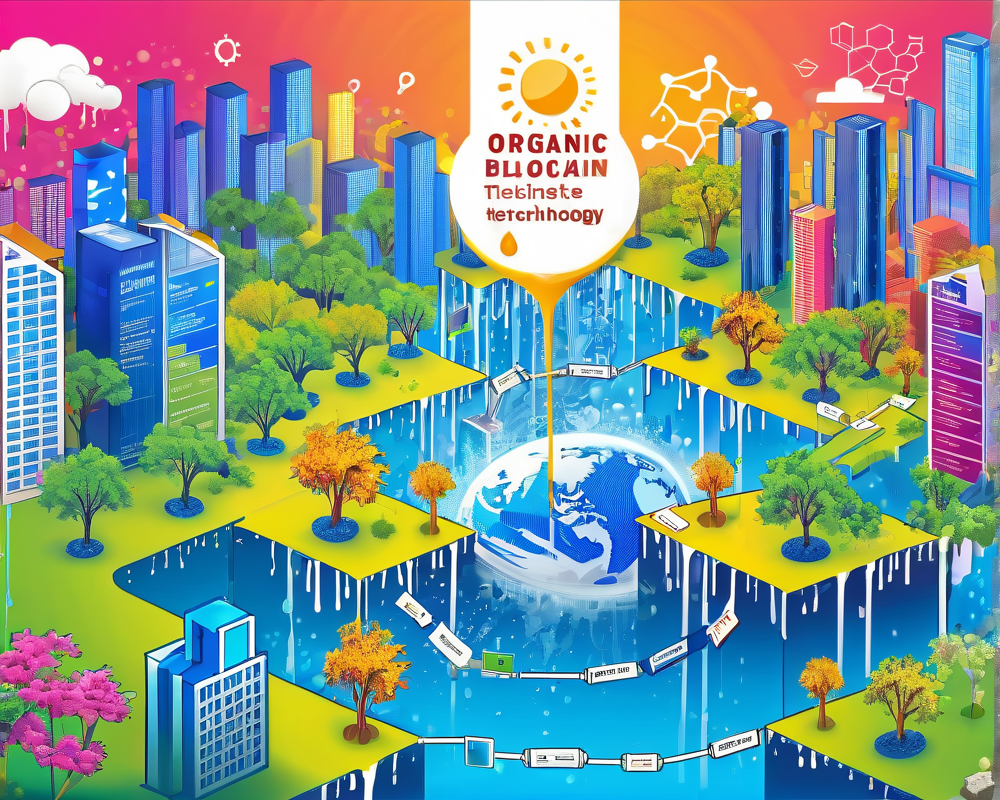The United Nations Climate Change Conference of November 2021, also known as COP26, highlighted the need for global commitment in reducing carbon emissions. With plans to achieve a net-zero world in the near future, many are seeking innovative approaches, including the integration of blockchain technology to fight climate change.
Blockchain: A Game Changer for Climate Solutions
The United Nations Environment Programme (UNEP) emphasizes the role of transparency and clean energy, recognizing that blockchain can accelerate climate initiatives. In 2017, the Paris Summit paved the way for supportive measures like the Climate Chain Coalition, signaling the UN’s endorsement of blockchain’s potential for climate action.
Collaborative Efforts in the MENA Region
During the MENA Climate Week, UNEP along with IAAI GloCha brought stakeholders together to examine how blockchain can enhance climate efforts. This culminated in the Blockchain4Climate networking event, outlining how the technology can support nations in executing effective climate strategies.
Navigating the Digital Asset Jungle
Interestingly, the digital asset arena has often faced scrutiny for its energy consumption. However, the reality is more complex. Not all cryptocurrencies are eco-villains; some blockchain platforms are paving the way toward sustainability. For example:
- Algorand: Declares its blockchain entirely carbon-neutral.
- Celo: A crowdfunding platform that operates on a carbon-negative blockchain.
- SavePlanetEarth: Launching certified Carbon Credit Smart NFTs.
These platforms illustrate that with the right implementation, blockchain can lead to environmentally friendly practices and solutions.
Innovative Projects Transforming Carbon Markets
Recent enthusiasm for carbon credits and reporting has unlocked avenues for tokenized green assets, such as:
- Green Utility Tokens: Rewards issued for reducing carbon emissions.
- Green Crypto: Tokens for green products only.
- NFT Carbon Credits: Track, trade, and verify carbon credits without double counting.
Initiatives like TreeCoin, which sells tokenized assets linked to eucalyptus trees, and Carbonland Trust, focusing on forest conservation, showcase the intersection of technology and sustainability.
Revolutionizing Energy Distribution with Smart Grids
Decentralized energy markets stand to gain tremendously from blockchain technology. Companies such as Powerledger empower consumers to trade energy directly. Local innovations, such as those seen with solar tech, drastically reduce costs and allow off-grid communities in places like Africa to harness renewable energy effectively:
- Azuri Technologies: Making solar power a reality for rural households.
- Mobisol: Offering affordable solar solutions.
Through a “pay as you go” model, families trading kerosene for solar power can enhance their quality of living while contributing to sustainability.
Gamifying Climate Action with NFTs
Non-fungible tokens (NFTs) are finding a foothold in climate activism. Initiatives such as SavePlanetEarth and DigitalArt4Climate leverage NFTs for environmental awareness and fundraising. Meanwhile, companies like GreenApes gamify climate action, allowing individuals to understand their carbon footprint amusingly and engagingly.
Future Forward: Measurement and DAOs
Blockchain’s capabilities also extend into environmental measurement and reporting, promising accurate tracking of climate impacts through data interoperability. It can connect environmental changes to tangible financial incentives, allowing communities to benefit from ecological restoration.
Furthermore, organizations like IAAI GloCha are developing digital economies focused on climate empowerment, presenting exciting prospects for innovative climate financing and collective action.
As we head into COP28, slated for November 2023, it’s clear that blockchain is not just a buzzword but a critical asset in the fight against climate change. The fusion of technology and ecology could very well define our future.




